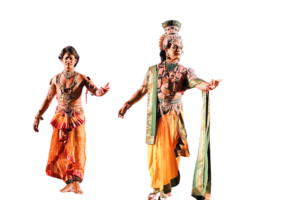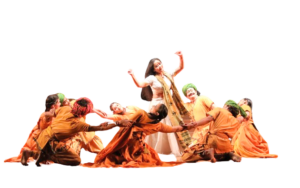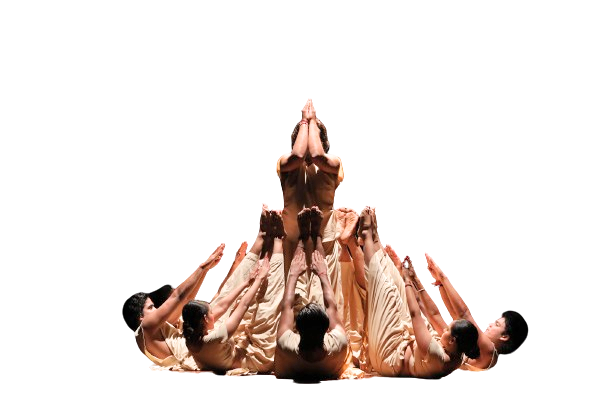In the realm of theatrical mastery, where the boundaries between reality and imagination blur, three mesmerizing dance-dramas beckon audiences on an odyssey of introspection and enlightenment. “Parikrama,” “Karna,” and “Meera” stand as artistic marvels, each weaving a tapestry of profound narratives drawn from the rich tapestry of Indian philosophy, mythology, and historical folklore.
“Parikrama” embarks on a philosophical voyage, delving deep into the labyrinthine corridors of the human psyche. Through the lens of Indian philosophy, it unravels the intricate threads of existence, from the primordial potentiality symbolized by the Hiranyagarbh to the soul’s journey towards liberation, as depicted in the Katha Upanishad. With innovative choreography and a poignant script, this production breathes life into abstract concepts, offering audiences a transcendent experience of clarity and enlightenment.

Meanwhile, “Karna” emerges as a poignant exploration of human resilience amidst the tumultuous currents of fate and adversity. Drawing from the epic Mahabharata, the dance-drama casts a penetrating spotlight on the character of Karna, whose life unfolds as a relentless struggle against the forces of destiny. Despite facing repeated injustices and societal norms, Karna’s noble virtues shine forth, evoking sympathy and admiration. Through his unwavering ideals of friendship, charity, and righteousness, “Karna” serves as a timeless reminder of morality’s triumph in the face of adversity, echoing the eternal wisdom of Lord Krishna himself.

In stark contrast, “Meera” illuminates the life of one of India’s greatest saint poetesses, whose verses resound with the melody of liberation and inner awakening. Meera’s vibrant poetry, infused with messages of freedom and emancipation, transcends the barriers of time and tradition. Breaking free from royal constraints, she emerges as a beacon of female empowerment, her dance and song embodying the spirit of liberation. As the production seeks to redefine Meera’s image, it casts a critical gaze on the plight of women in India, navigating the treacherous waters of a male-dominated society. Through an introspective exploration of their struggles, “Meera” invites audiences to confront the complexities of gender dynamics with empathy and understanding.
Together, these three dance-dramas form a triumvirate of artistic excellence, each offering a unique perspective on the human condition. From the cyclical nature of existence to the enduring quest for justice and liberation, “Parikrama,” “Karna,” and “Meera” transcend the boundaries of time and space, inviting audiences on a transformative journey through the depths of the human spirit. As the curtains rise and the melodies of enlightenment fill the air, let us embark on this odyssey together, guided by the timeless wisdom of ancient tales and the boundless creativity of the human imagination.







